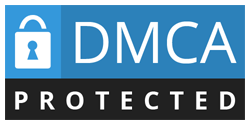
Immigration News, News, Visas
UK Work Visa Sponsorship Cost
The Bottom Line: Calculating the Skilled Visa Sponsorship Costs for Employers
As an employer, you may be considering sponsoring skilled workers from overseas to fill positions within your organization. However, it's important to understand the costs associated with such sponsorship to ensure that it aligns with your budget and overall business goals. In this article, we will explore the different factors that contribute to the expenses of sponsoring a skilled visa, providing you with a clear understanding of the bottom line.
From application fees to health insurance expenses, there are various costs that employers need to account for when sponsoring skilled workers. Additionally, the specific type of visa, duration of sponsorship, and any additional requirements or certifications can impact the overall expenses. By comprehending these factors, you can more accurately estimate and plan for the costs associated with skilled visa sponsorship.
Ultimately, calculating the skilled visa sponsorship costs will enable you to make informed decisions about hiring foreign workers and aligning your immigration strategies with your financial resources. So, let's dive into the details and determine the financial implications of sponsoring skilled workers for your business.
Factors to consider when calculating skilled visa sponsorship costs
Sponsoring skilled workers from overseas involves a complex process that requires both time and financial investment. Before delving into the costs, it's crucial to have a clear understanding of what skilled visa sponsorship entails. Skilled visa sponsorship is a mechanism through which employers can hire foreign workers to fill specific roles that cannot be filled by the local workforce. It involves navigating the immigration system and adhering to certain legal and regulatory requirements.
Cost of a sponsor licence
When an organisation applies for a sponsor licence, the Home Office charges either:
- £536 if the organisation is a charity or defined as a small entity; or
- £1,476 for large sponsors.
Official guidance on sponsor licence applications shows how size and charitable status is determined. In general, the definitions in Chapter 1 of the Companies Act 2006 are used to determine size:
A company qualifies as small if it meets 2 of the below criteria in a financial year:
• turnover is not more than £10.2 million
• balance sheet total is not more than £5.1 million (aggregate of the amounts shown as assets in the company’s balance sheet)
• number of employees does not exceed 50 (taken as an average across the financial year)
Sponsor licences are valid for four years. It costs the same amount to renew it.
Cost of sponsoring a Skilled Worker
The UK’s main work visa route is called Skilled Worker. I’ve set out the various costs of a Skilled Worker application below. There are some exceptions to some of the fees (for example, those who are switching, international students, etc.) but these are the main ones that will apply to most workers.
Certificate of sponsorship
A certificate of sponsorship, or CoS, is issued by approved sponsors to workers they wish to hire. The worker then uses the CoS to apply for their Skilled Worker visa.
The cost of issuing each certificate of sponsorship is £239.
Immigration Skills Charge
This is essentially a tax levied on businesses for employing foreign workers.
For a small or charitable sponsor, the Immigration Skills Charge is £364 for the first year and £182 for each additional six months. So the cost of sponsoring someone for five years would be £1,820.
For a medium or large sponsor, the charge is £1,000 for the first year and £500 for each additional six months. The cost of sponsoring someone for five years would be £5,000.
Visa application fee
Then there is the headline visa application fee. Someone applying from outside the UK for a Skilled Worker visa is charged:
- visa up to three years in a non-shortage occupation: £625
- visa up to three years in a shortage occupation: £479
- visa for more than three years in non-shortage occupation: £1,235
- visa for more than years in a shortage occupation: £943
The exact fee can vary, for example if the person is applying from inside the UK. More details are here.
Immigration Health Surcharge
The Immigration Health Surcharge is to be paid on top of the application fee outlined above. It is £624 for each year of the visa. So the Immigration Health Surcharge adds £3,120 to the cost of a five-year visa, £1,872 to a three-year visa and £624 for a one-year visa.
Like the application fee, it is normally down to the worker to pay.
Premium service for employers
The Home Office also operates a premium service for sponsors. For a fee of £25,000 per year for a medium/large business, or £8,000 for a small business, a range of extras is promised — you can read about these here.
Budgeting for skilled visa sponsorship
In addition to the factors mentioned above, there are several other costs and considerations that employers need to account for when sponsoring skilled workers. These can include:
1. Visa application fees: Employers are required to pay application fees for sponsoring skilled workers. The cost of these fees can vary depending on the specific visa category and the number of workers being sponsored.
2. Legal and migration agent fees: Employers may choose to engage the services of a migration agent or immigration lawyer to assist with the visa sponsorship process. These professional services come with their own fees, which should be factored into the overall cost calculation.
3. Recruitment and advertising costs: Employers may need to advertise and recruit for the position they are sponsoring. These costs can include job board postings, recruitment agency fees, and advertising expenses.
4. Relocation and settlement support: If the sponsored worker is relocating from overseas, employers may need to provide assistance with relocation expenses, such as visa application fees for family members, flights, accommodation, and settling-in support.
5. Compliance and monitoring costs: Employers are responsible for ensuring ongoing compliance with the visa sponsorship obligations. This may involve additional administrative costs, such as record-keeping, reporting, and monitoring activities.
It is important for employers to carefully consider these additional costs and include them in their budgeting and financial planning. By accurately calculating the total expenses associated with sponsoring skilled workers, employers can make informed decisions and avoid any unexpected financial burdens.
Frequently Asked Questions
Who is Responsible for the Expenses?
The sponsor can, agree that the worker will pay their own application fee and Immigration Health Surcharge. Note that sponsors cannot lawfully pass the Immigration Skill Charge on to individuals. The licence fee is also paid by the sponsor. While the employer is obligated to cover the Immigration Skills Charge, other expenses can be divided between the employer and the applicant. For instance, you may choose to generously pay for the application fee while requesting the employee to take care of their own Immigration Health Surcharge. It is crucial to discuss and come to an agreement with your employee before initiating the application process.
What about the rest of the family?
It's important to note that family members will also have to cover their own application fees and Immigration Health Surcharges. As a result, these expenses can add up significantly for each additional applicant. To ensure a smooth process, it's essential to discuss with your potential employee how many family members they plan to bring and come to an agreement on who will bear the financial responsibility for these costs.
If you are interested in employing overseas talent to work for your business and would like help with a sponsor license or the application process we can help. Give us a call on 01403 801 801 or email us at [email protected].












